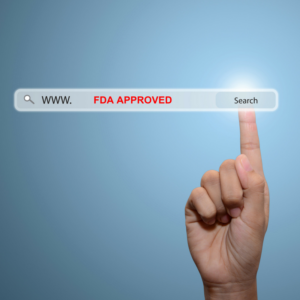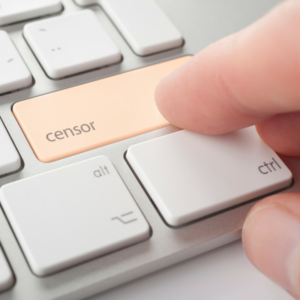Did Instagram Shut Down our Account as Part of its Crackdown on Opioid Drugs: Protecting Patients or Big Pharma Censorship of Lower Drug Prices?

The pharmaceutical industry, generally, does not like our company. As an extension of that feeling, the FDA doesn’t love us either. Basically, we are in Big Pharma’s crosshairs because the information we provide helps people find more affordable medicines from other countries and import it for personal use.
But is that a reason for Instagram to shutdown our account!? That action is nothing less than corporate-inspired, government-encouraged censorship. Mike Masnick of TechDirt refers to this as the soft underbelly of Internet censorship. Also, please read this background from the Electronic Frontier Foundation calling out Big Pharma on this issue.
Congress and the FDA are banging on the door of Facebook, Google, Instagram, etc. about stopping people from selling opioids on their platforms. We can debate until the cows come home about what content should be self-censored — meaning removed without a court order — but please hear me out on why Instagram’s dissing PharmacyChecker doesn’t even come close to acceptable and let us know if you agree or disagree.
First of all, PharmacyChecker.com does not sell or facilitate the sale of medication. Medications are not purchased on our site and we have no role in the processing of prescription orders. We verify credentials and publish information about online pharmacies and drug prices. That information is globally accessible on the Internet.
By the way, our Verification Program bans online pharmacies that ship controlled drugs of any kind into the U.S. This includes not only prescription opioids, but also Valium, Xanax, and Adderall. We’re with the DEA on strict controls and highly attuned to and concerned about the opioid crisis. I have friends who view our policy as too conservative. You get the picture.
We agree with cracking down against dealers of opioids, with Fentanyl being the greatest concern. On the other hand, we have seen Pharma and the government use a crackdown against addictive prescription drug sales online to veer into a crackdown against imports from Canada of decidedly regular meds that treat asthma, diabetes, depression, high cholesterol and blood pressure, etc.
We launched PharmacyChecker in 2003 to help people searching the Internet for lower medicine prices from real pharmacies, domestic and international. Our verification program is run by a licensed PharmD from Massachusetts, Dr. Shivam Patel. Pharmacies listed in our program must require valid prescriptions, sell only personal-use quantities, have a pharmacy license, and cannot sell controlled drugs of any kind internationally, into the U.S.
Feel free to read about our extensive protocols for verifying international online pharmacies.
In 2012, I was asked to write a chapter in a book called Hacking Politics, which is now published as an anthology about the battle to kill the Stop Online Piracy Act. My chapter was called the “Online Pharmacy Story.” In short, due to lobbying by the pharmaceutical industry, SOPA contained language that would have potentially made PharmacyChecker.com illegal at a maximum; at minimum, it would have increased our intermediary liability exposure. I strongly opposed it. And yet we see big industries moving SOPA by a thousand cuts.
I believe there’s some chance that Instagram dissed our account accidentally, based on a sweep of sites having to do with drugs, medicines, pharmacies, etc. But there’s also a small chance that Pharma’s influence led to the direct shutdown of our account as a slap in the face to PharmacyChecker advocacy efforts. I’m constantly criticizing Pharma’s propaganda about importation and online pharmacies our blog, in the New York Times, RightsCon, and directly to members of Congress in my testimony.
In fact, last year I caught PhRMA, meaning the big pharma trade association, placing Google ads using our name to dissuade people against importation of lower-cost medicines. As I wrote in our blog, that was a badge of honor but kind of disconcerting as well.
Late last month, the FDA called Instagram, Google, Reddit, and many others, to what was called the FDA Opioid Online Summit. I blogged about it beforehand mostly to note that groups funded by Pharma were well represented, ones that focus on opposing importation of lower-cost medicines and use the opioid crisis for that goal. Initially, the summit was billed as a public event, but it turns out that journalists were locked out and those that covered the public part did conclude that opioids were not the sole target, but cheaper meds were open season, too.
We want our Instagram account reinstated on principle, yet no one has responded to our multiple attempts at contacting Instagram’s customer support.
Anyone willing to weigh in on this?
Tagged with: Instagram, opioids, Stop Online Piracy Act

 Last week, I published an article about
Last week, I published an article about 
